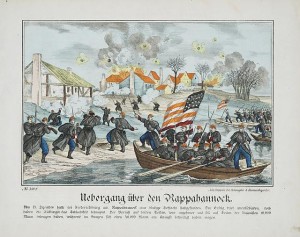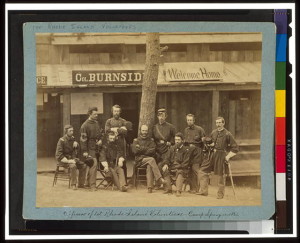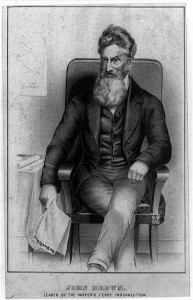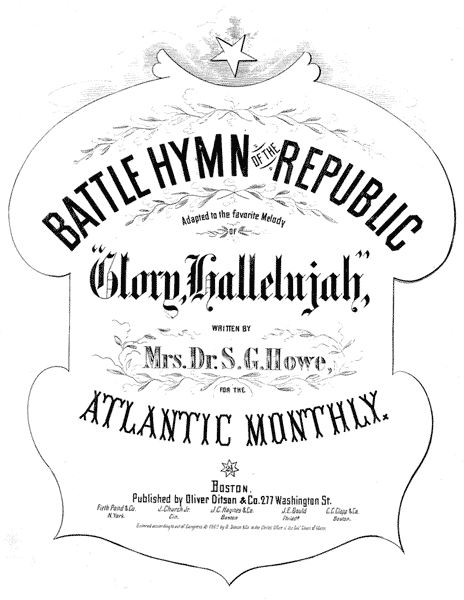Here’s some Southern rhetoric about the Confederacy’s great victory at Fredericksburg, which this editorial views as another failure of the North’s Anaconda Plan.
From the Richmond Daily Dispatch December 18, 1862:
Burnside’s Whereabouts.
At the time of writing this article, nothing has been heard of Burnside. …
The prisoners say the Confederates have no idea of the extent of their success. We believe it. We know that we have gained another great and glorious victory; but we believe it is far greater and far more glorious than the most sanguine among us imagine. We shall never get at the truth, for Burnside will never tell it, and we have no means of ascertaining it independently of him. Our General is not like McClellan, who always knows to an eye and a log what his enemy has lost, but can never find out what he has lost himself. But it will be Judged by its effects. It has again broken the coil of the anaconda for the fifth or sixth time. It has stopped the latest “on to Richmond.” It has demonstrated what, indeed required no farther demonstration than it had already received, that this war, pursued for an object which can never be obtained, is a sheer piece of wickedness and folly on a stupendous scale.
The late Burnside.
The inhabitants of Yankeedom, having had their fill of glory over the occupation of Fredericksburg, are now doubtless prepared to felicitate themselves upon its evacuation. Next to an “onward movement,” nothing exalts them so much as a “change of base.” The first illustrates their superhuman valor; the last, their unapproachable generalship. Burnside has gratified them in both particulars. He came thundering down upon Fredericksburg like a thousand locomotives; he departed like a dog with his tail cut off. A dog with his tail cut off affords a literal exemplification of that famous Yankee operation, a change of base. The creature’s base is changed, but not his baseness. He will bite again at the first opportunity; and cutting off his tail does not improve his habits; nothing but the loss of his head will ever improve his heart.
We are curious to see what will now be the fate of Burnside. The Fredericksburg route to Richmond was his pet scheme, and in this he had the emphatic approval of the Yankee Commander in Chief, Gen. Halleck. His career has been a short one; brief and inglorious as that of the robber, Pope. The inscription upon his tombstone should be:
“If so soon he’s done for,
Wonder what he was begun for.”
The manes of McClellan are now avenged. He was decapitated for not moving; Burnside avoided that error, and behold the result. The unfortunate Yankee Generals are between Seylla and Charybdis. If they stand still their own Government destroys them; if they don’t stand still, they are destroyed by the Confederates. Burnside’s next “onward movement” may be to New Jersey, that Botuny Bay [Botony Bay] of unfortunate Federal Generals. He said he was going to [e]nd the war on the Rappahannock, but the Rappahannock has proved as intractable as the Chickahominy. Instead of ending the war, he has only put an end to himself.
A National song.
It appears that the Republicans have adopted the famous “John Brown’s Soul’s a Marching On” as a national song, and no one can dispute the propriety of the selection. It is impossible to imagine anything more atrocious than the poetry except it sentiments, nor more abominable than the subject except the people. A more faithful type of the Puritan race than John Brown could not be found. A fanatic, a horse thief, and murderer, no one can dispute his claims to be the patron saint of the rogues and ruffians who are “marching on.” stealing and butchering as they go.
The French have the “Marsellaise,” the Britons “God Save the Queen,” the United States once had “Hail Columbia,” and the Yankees “Yankee Doodle”–an appropriate air for them in their days of simplicity — but “John Brown” is the melody of all others suited to their course and full-blown depravity. It is redolent of all the peculiar characteristics of that peculiar people. The horse thief, murderer, and insurrectionist, was the true representative of the spirit and character of this whole invasion, and his ignominious end of the destiny which awaits it.
“It has again broken the coil of the anaconda for the fifth or sixth time.” That might be one way to sum up the war because the blustering, blundering Yankees had the resources (and enough political will) to keep on squeezing. “The Battle Hymn of the Republic” probably did help keep up a persevering spirit in a part of the Northern public.




